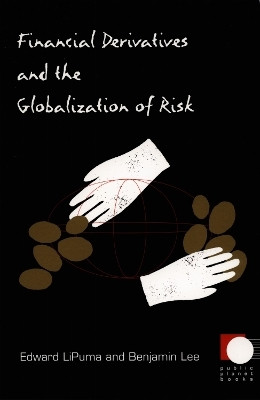Financial Derivatives and the Globalization of Risk(English, Hardcover, Lee Benjamin)
Quick Overview
Product Price Comparison
The market for financial derivatives is far and away the largest and most powerful market in the world, and it is growing exponentially. In 1970 the yearly valuation of financial derivatives was only a few million dollars. By 1980 the sum had swollen to nearly one hundred million dollars. By 1990 it had climbed to almost one hundred billion dollars, and in 2000 it approached one hundred trillion. Created and sustained by a small number of European and American banks, corporations, and hedge funds, the derivatives market has an enormous impact on the economies of nations-particularly poorer nations-because it controls the price of money. Derivatives bought and sold by means of computer keystrokes in London and New York affect the price of food, clothing, and housing in Johannesburg, Kuala Lumpur, and Buenos Aires. Arguing that social theorists concerned with globalization must familiarize themselves with the mechanisms of a world economy based on the rapid circulation of capital, Edward LiPuma and Benjamin Lee offer a concise introduction to financial derivatives. LiPuma and Lee explain how derivatives are essentially wagers-often on the fluctuations of national currencies-based on models that aggregate and price risk. They describe how these financial instruments are changing the face of capitalism, undermining the power of nations and perpetrating a new and less visible form of domination on postcolonial societies. As they ask: How does one know about, let alone demonstrate against, an unlisted, virtual, offshore corporation that operates in an unregulated electronic space using a secret proprietary trading strategy to buy and sell arcane financial instruments? LiPuma and Lee provide a necessary look at the obscure but consequential role of financial derivatives in the global economy.


